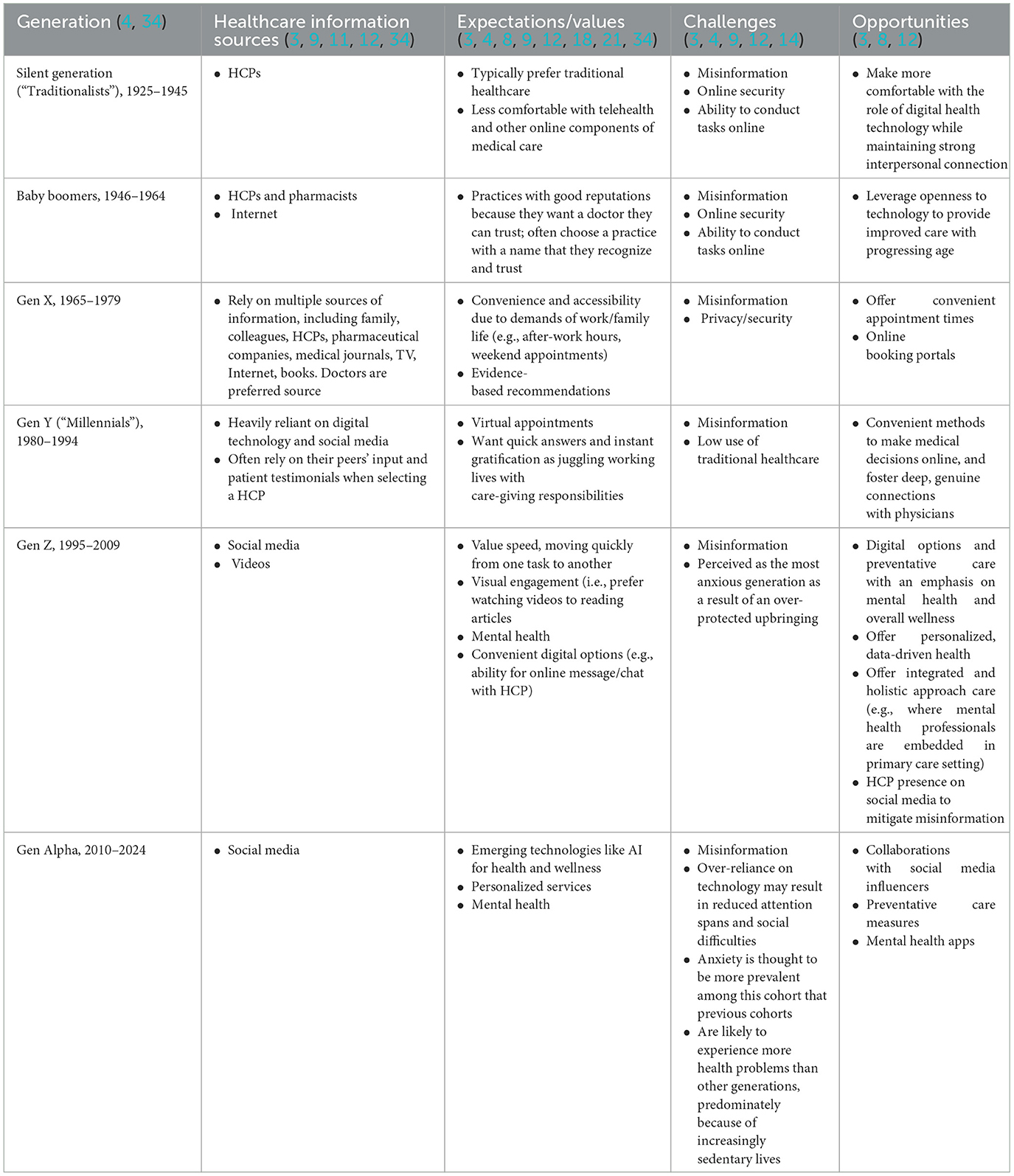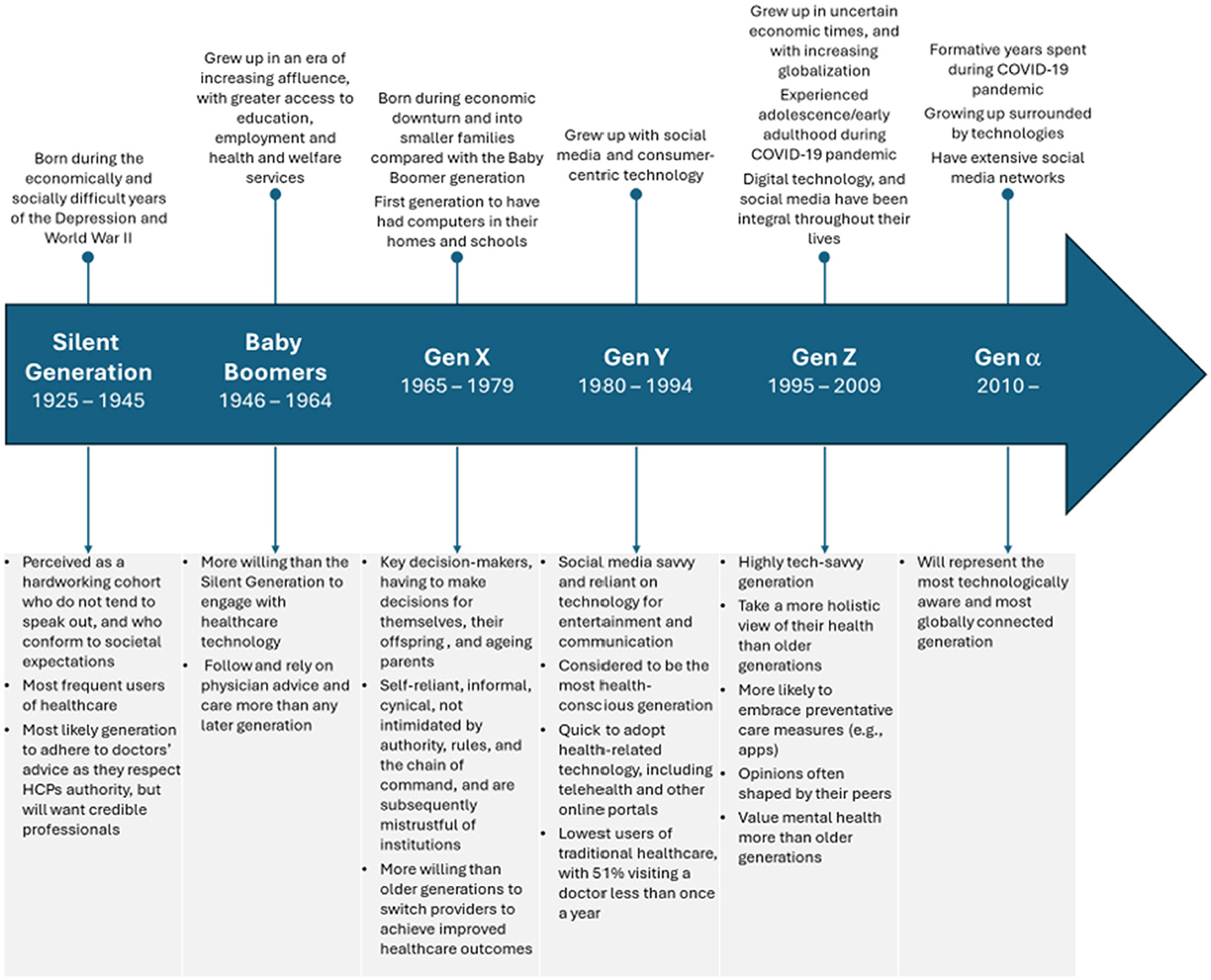Generational Differences in Healthcare: The Role of Technology
Healthcare systems worldwide face increasing pressure due to aging populations, rising chronic diseases, and heightened patient expectations. Generational differences significantly impact perceptions of health, healthcare decision-making, technology use, and attitudes toward preventative health.
Understanding Generational Differences
The Generational Cohort Theory explains how individuals from the same generation share similar behaviors, values, and perceptions shaped by common life experiences and historical events. Six contemporary generations exist: the Silent Generation (1925-1945), Baby Boomers (1946-1964), Generation X (1965-1979), Millennials (1980-1994), Generation Z (1995-2009), and Generation Alpha (2010-2024).
Perceptions of Health Across Generations
- The Silent Generation views health traditionally, focusing on physical well-being.
- Baby Boomers prioritize physical health but are open to holistic perspectives.
- Generation X takes a more holistic view, influenced by technological advances and mental health awareness.
- Millennials, Gen Z, and Gen Alpha emphasize holistic health, including mental wellness and preventive care.
Healthcare Decision-Making
Younger generations increasingly rely on digital resources for health information, while older generations prefer traditional healthcare models. Patient autonomy has replaced medical paternalism, with informed and shared decision-making becoming more prevalent.
Use of Digital Technologies
- Digital natives (Millennials and younger) heavily rely on technology for health information.
- Older generations (Silent Generation and some Boomers) face barriers due to limited digital literacy.
Challenges and Opportunities
- Addressing Generational Health Needs: Tailored approaches are necessary to meet diverse expectations, including flexible consultation options and communication methods.
- Digital Health Literacy: Enhancing digital literacy is crucial to combat misinformation and empower patients.
- Hybrid Healthcare Models: Combining traditional and digital healthcare approaches can improve patient engagement across generations.
- AI-Powered Healthcare Tools: AI can enhance diagnosis, treatment, and patient education, but requires careful implementation and transparency.
Conclusion
A multi-faceted approach is needed to address generational differences in healthcare. By leveraging technology, improving digital literacy, and implementing hybrid care models, healthcare systems can better meet the evolving needs of diverse patient populations.




